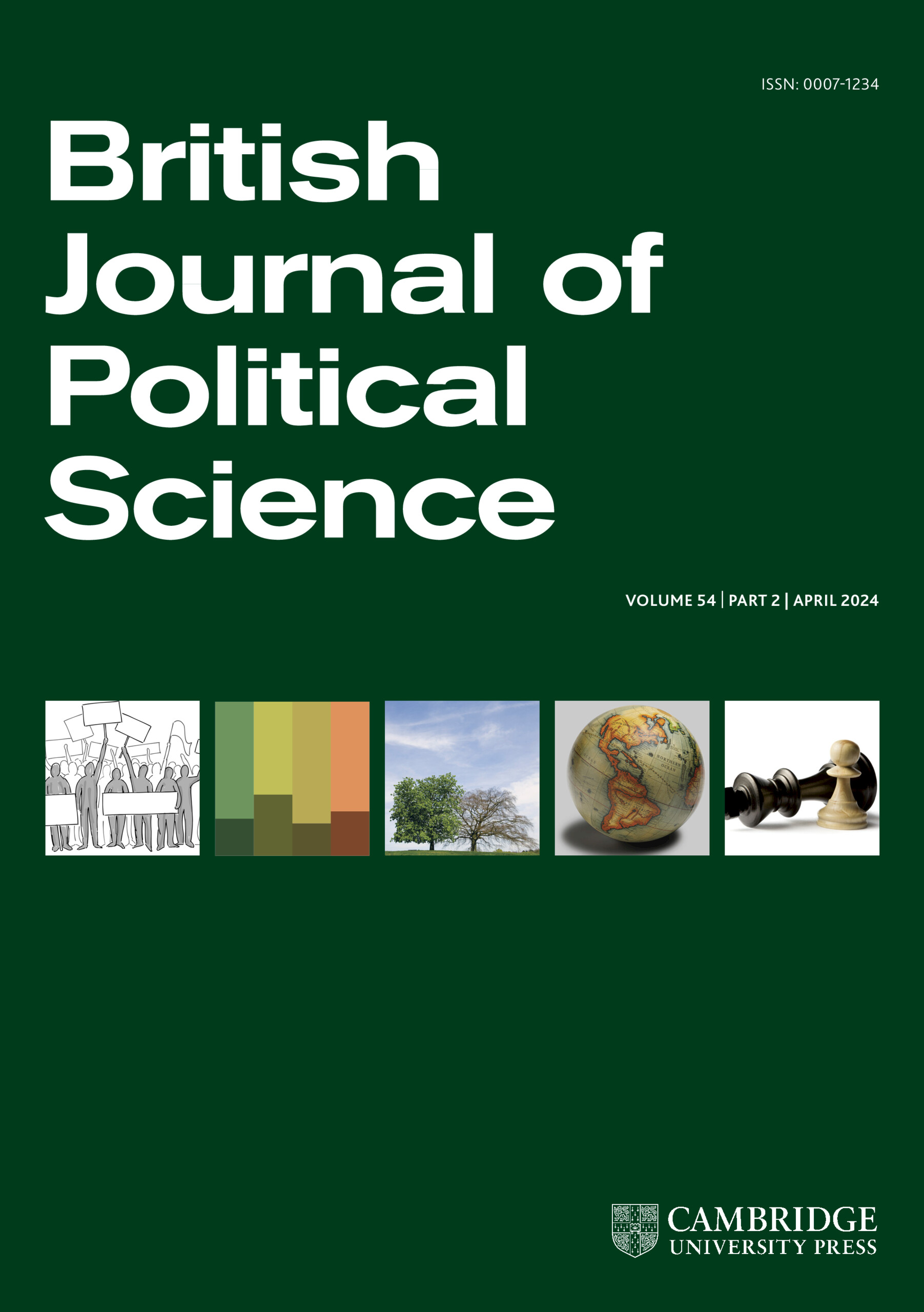Does Austerity Cause Polarization?
IF 4.6
1区 社会学
Q1 POLITICAL SCIENCE
引用次数: 6
Abstract
Abstract In recent decades, governments in many Western democracies have shown a remarkable consensus in pursuing fiscal austerity measures during periods of strained public finances. In this article, we show that these decisions have consequences for political polarization. Our macro-level analysis of 166 elections since 1980 finds that austerity measures increase both electoral abstention and votes for non-mainstream parties, thereby boosting party system polarization. A detailed analysis of selected austerity episodes also shows that new, small and radical parties benefit most from austerity policies. Finally, survey experiments with a total of 8,800 respondents in Germany, Portugal, Spain and the UK indicate that the effects of austerity on polarization are particularly pronounced when the mainstream right and left parties both stand for fiscal restraint. Austerity is a substantial cause of political polarization and hence political instability in industrialized democracies.紧缩会导致两极分化吗?
近几十年来,许多西方民主国家的政府在公共财政紧张时期采取财政紧缩措施方面表现出了显著的共识。在本文中,我们展示了这些决定对政治两极分化的影响。我们对1980年以来166次选举的宏观分析发现,紧缩措施既增加了选民的弃权,也增加了非主流政党的选票,从而加剧了政党制度的两极分化。对选定的紧缩时期的详细分析也表明,新的、小的和激进的政党从紧缩政策中获益最多。最后,对德国、葡萄牙、西班牙和英国共8800名受访者进行的调查实验表明,当主流右翼和左翼政党都支持财政紧缩时,紧缩对两极分化的影响尤为明显。财政紧缩是工业化民主国家政治两极分化和政治不稳定的重要原因。
本文章由计算机程序翻译,如有差异,请以英文原文为准。
求助全文
约1分钟内获得全文
求助全文
来源期刊

British Journal of Political Science
POLITICAL SCIENCE-
CiteScore
8.70
自引率
4.00%
发文量
64
期刊介绍:
The British Journal of Political Science is a broadly based journal aiming to cover developments across a wide range of countries and specialisms. Contributions are drawn from all fields of political science (including political theory, political behaviour, public policy and international relations), and articles from scholars in related disciplines (sociology, social psychology, economics and philosophy) appear frequently. With a reputation established over nearly 40 years of publication, the British Journal of Political Science is widely recognised as one of the premier journals in its field.
 求助内容:
求助内容: 应助结果提醒方式:
应助结果提醒方式:


